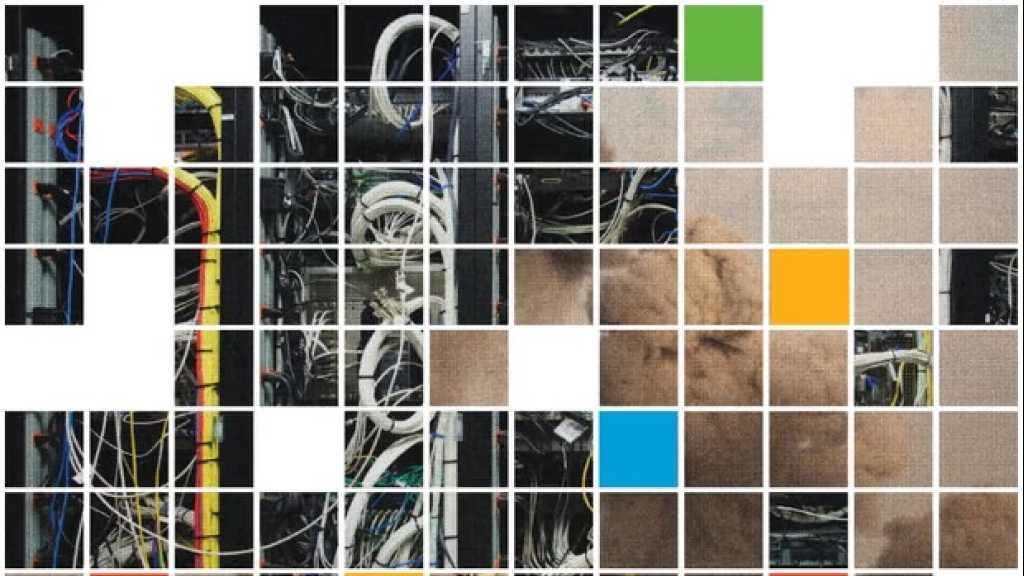Microsoft Cuts Off ’Israel’ Over Spy Tech Use

By Staff, Agencies
Microsoft has terminated the "Israeli" military’s access to technology it used to operate a powerful surveillance system that collected millions of Palestinian civilian phone calls made each day in Gaza and the West Bank, the Guardian can reveal.
Microsoft told "Israeli" officials late last week that Unit 8200, the military’s elite spy agency, had violated the company’s terms of service by storing the vast trove of surveillance data in its Azure cloud platform, sources familiar with the situation said.
The decision to cut off Unit 8200’s ability to use some of its technology results directly from an investigation published by the Guardian last month. It revealed how Azure was being used to store and process the trove of Palestinian communications in a mass surveillance programme.
In a joint investigation with the “Israeli”-Palestinian publication +972 Magazine and the Hebrew-language outlet Local Call, the Guardian revealed how Microsoft and Unit 8200 had worked together on a plan to move large volumes of sensitive intelligence material into Azure.
The project began after a meeting in 2021 between Microsoft’s chief executive, Satya Nadella, and the unit’s then commander, Yossi Sariel.
In response to the investigation, Microsoft ordered an urgent external inquiry to review its relationship with Unit 8200. Its initial findings have now led the company to cancel the unit’s access to some of its cloud storage and AI services.
Equipped with Azure’s near-limitless storage capacity and computing power, Unit 8200 had built an indiscriminate new system allowing its intelligence officers to collect, play back and analyse the content of cellular calls of an entire population.
The project was so expansive that, according to sources from Unit 8200 – which is equivalent in its remit to the US National Security Agency – a mantra emerged internally that captured its scale and ambition: “A million calls an hour.”
According to several sources, Sources say up to 8,000 terabytes of intercepted calls were stored in a Microsoft datacenter in the Netherlands. Days after the Guardian's report, Unit 8200 quickly moved the surveillance data out of the country.
Sources say the large data transfer from the EU took place in early August, with Unit 8200 planning to move it to Amazon Web Services. Neither the “Israeli” Occupation Forces [IOF] nor Amazon commented.
Microsoft’s decision to cut the spy agency’s access came under pressure from employees and investors over its role in supporting "Israel's" nearly two-year offensive on Gaza.
A United Nations commission of inquiry recently concluded that “Israel” had committed genocide in Gaza, a charge denied by “Israel” but supported by many experts in international law.
The Guardian’s investigation sparked protests at Microsoft’s US headquarters and a European datacenter, with the worker-led group No Azure for Apartheid demanding an end to all ties with the IOF.
On Thursday, Microsoft’s vice-chair Brad Smith told staff the company had “ceased and disabled” cloud and AI services to a unit within the "Israeli" war ministry, according to an email seen by the Guardian.
Smith wrote: “We do not provide technology to facilitate mass surveillance of civilians. We have applied this principle in every country around the world, and we have insisted on it repeatedly for more than two decades.”
The decision brings to an abrupt end a three-year period in which the spy agency operated its surveillance programme using Microsoft’s technology.
Unit 8200 intercepted and collected calls using its own surveillance tools, storing them in a customized, isolated section of Microsoft Azure for long-term retention and AI-driven analysis.
Initially focused on the West Bank, where 3 million Palestinians live under occupation, the cloud system was later used in the Gaza offensive to support deadly airstrike planning, according to intelligence sources.
The revelations show how "Israel" has depended on major US tech firms to support its Gaza bombardment, which has claimed over 65,000 Palestinians—mostly civilians—and caused a severe humanitarian and starvation crisis.
According to a document seen by the Guardian, a senior Microsoft executive told “Israel’s” ministry of war late last week: “While our review is ongoing, we have at this juncture identified evidence that supports elements of the Guardian’s reporting.”
The executive told "Israeli" officials that Microsoft “is not in the business of facilitating mass surveillance of civilians” and would disable services linked to Unit 8200’s surveillance project, including suspending some AI tools.
The termination is the first known case of a US technology company withdrawing services provided to the IOF since the beginning of its war on Gaza.
The decision didn’t impact Microsoft’s broader ties with the IOF, which remains a client with access to other services. It raises concerns in "Israel" about storing sensitive military data on overseas third-party clouds.
Last month’s revelations about Unit 8200’s use of Microsoft tech came after an earlier Guardian investigation into the company’s wider ties with the IOF.
That story, published in January and based on leaked files, showed how the IOF’s reliance on Azure and its AI systems surged in the most intensive phase of its Gaza campaign.
Following that report, Microsoft launched its first review of IOF’s use of its services, stating in May it found “no evidence” the military violated terms or used Azure and AI to target or harm people in Gaza.
However, the August Guardian investigation with +972 and Local Call, revealing the cloud surveillance was used to identify Gaza bombing targets, prompted Microsoft to reconsider its conclusions.
The disclosures alarmed senior Microsoft executives, raising concerns that some "Israel"-based employees may have withheld information about Unit 8200’s use of Azure during the review.
The company said its executives, including Nadella, were not aware Unit 8200 planned to use, or ultimately used, Azure to store the content of intercepted Palestinian calls.
Microsoft launched a second, more focused review led by US law firm Covington & Burling. Brad Smith told staff the inquiry didn’t access customer data but reviewed internal documents, emails, and staff messages.
“I want to note our appreciation for the reporting of the Guardian,” Smith wrote, noting that it had brought to light “information we could not access in light of our customer privacy commitments”. He added: “Our review is ongoing.”
Comments

Microsoft Cuts Off ’Israel’ Over Spy Tech Use
one month ago


